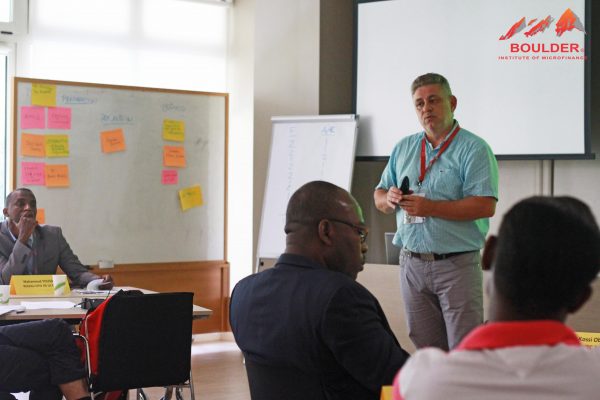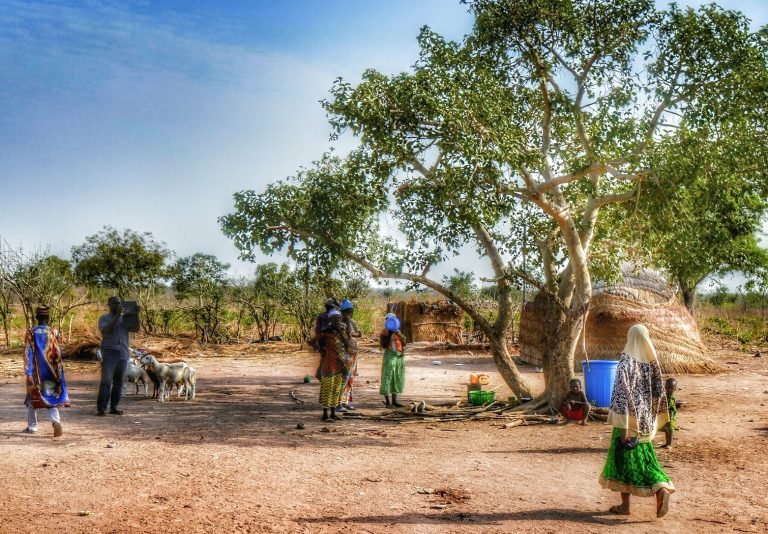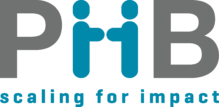
Adapt or Die! A Changing Landscape for Microfinance
“A large part of the financial sector is not adapting well to new market environments and seems to have lost focus on the mission to provide financial services to the poor,”
How are changes in technology and customer preferences driving the financial inclusion market? What is PHB Development doing to deliver in this changing landscape? PHB founder, Philippe Breul, and PHB Academy Co-Director, Pete Sparreboom, share insights on trends and solutions to connect with customer needs:
With the support of PHB Academy, Philippe taught two courses in the Summer 2017 session of Boulder Microfinance Training in Italy, which was also the first year that Boulder featured a special track on digital finance (DF). In a sign of the times, DF courses were oversubscribed, and additional instruction was added to help meet the demand.
“A large part of the financial sector is not adapting well to new market environments and seems to have lost focus on the mission to provide financial services to the poor,” said Philippe about trends he is seeing in the sector, “By conducting extensive client research, PHB helps financial institutions develop new products that deliver a good value proposition to both the institution and customers. This helps them stay faithful to their original mission.”
PHB Academy conducts research and provides online instruction on how to stay ahead of changing needs of the market, and apply innovations to deliver the right services to customers. Pete Sparreboom, PHB Academy Co-Director, said “Microfinance institutions that do not adapt to demand are putting their portfolio and bottom line at risk. It’s important to address clients’ demand for services that will save them valuable time and effort. Mobile money operators are getting ahead of traditional MFIs because clients are no longer accepting to wait several weeks for loans after complicated applications and travel distances to branch offices. Customers expect convenience and ready access to a range of services. It’s that simple.”
The Digital Finance Toolkit series (from PHB, UNCDF MicroLead and the MasterCard Foundation) allows financial institutions to connect effectively with the market and customers through the introduction of digital financial services. “PHB is striving to remain a leader in the sector through a human-centric design approach to mobile technology,” said Philippe, “We conduct extensive field research that leads to prototyping, testing and then the development of a solid strategy that covers the customers’ needs.”
For the future of microfinance institutions, Philippe said, “It’s crucial for microfinance institutions to update their operational models and strategies, and bring the changes prominently into the market. It is really an adapt-or-die situation. PHB with PHB Academy is leading the way to deliver modern benefits in line with our mission and values of financial inclusion.”

Rural Development & Financial Inclusion
People in rural and low-income areas can now open new economic opportunities to participate in even basic systems which they previously could not access.
Alone no more: Rural Communities finding Financial Inclusion
Not so long ago, rural communities far away from urban centres of business were left with few external resources to build their economic activity and raise standards of living. This scenario has changed.
People in rural and low-income areas can now open new economic opportunities to participate in even basic systems which they previously could not access. An increasing number of microfinance institutions (MFIs) and other financial inclusion services are catering to the poor in rural areas and empowering people to provide for their own needs and to rise from impoverished situations.
The results are communities that are more productive and less vulnerable to natural and human risks. Safer housing structures, engagement in education, access to health care, and improved water/sanitation facilities are some benefits that are resulting.
Services such as small loans that enable basic entrepreneurship are simple operations with far-reaching impacts on the local economic cycle. Credit services are tailored for different consumers to meet their needs:
- Agriculture leases (helping farmers endure low seasons and thrive in good seasons)
- Education loans (investing in the future of the communities as a whole)
- Consumer loans (building potential for a healthy local exchange)
- Housing loans (enabling a more secure existence for families)
Remittance services are also popular in rural areas for family members to regularly transfer money to each other. Women, youth and the disabled are benefitting in particular from modern systems, as these groups may have been previously deprived of financial services and resulting earning opportunities.
Digital financial services (DFS) enable business transactions that also save users from the time and cost of travel to financial institutions. The savings accounts offered by MTN MoKash and Airtel Wewolw are examples of services with which people can save and access their money through mobile wallets without worrying about security issues.
Of course, there are risks for MFIs from issues such as high default rates that may discourage some providers. Making a positive social impact in challenging situations requires a certain level of commitment and expertise, and PHB Development is glad to be a leader in this sector of enabling low-income rural areas to become more prosperous and resilient.
